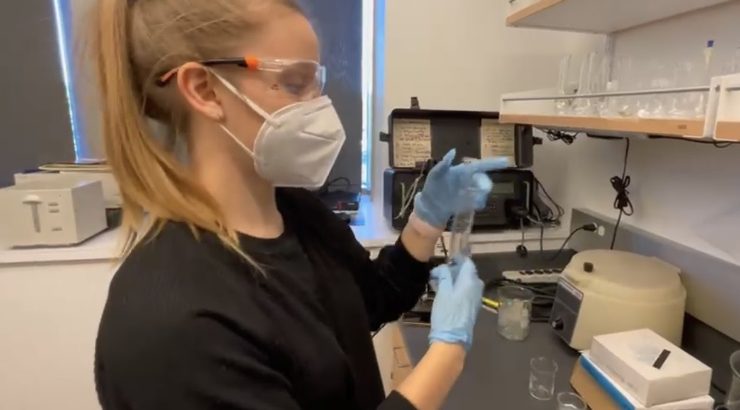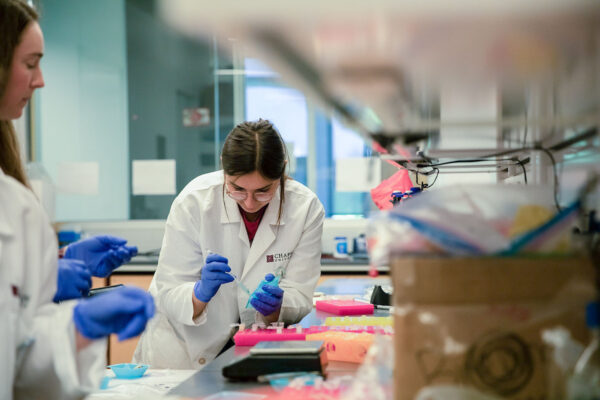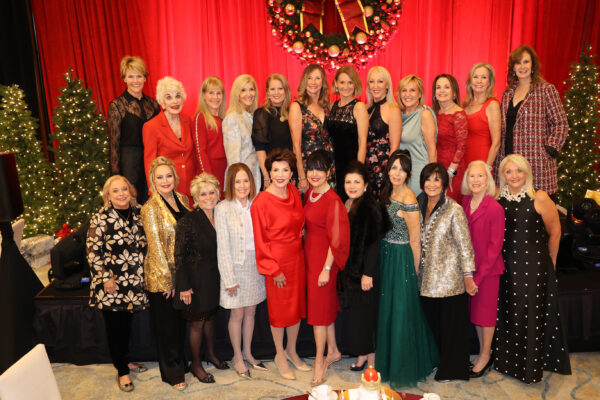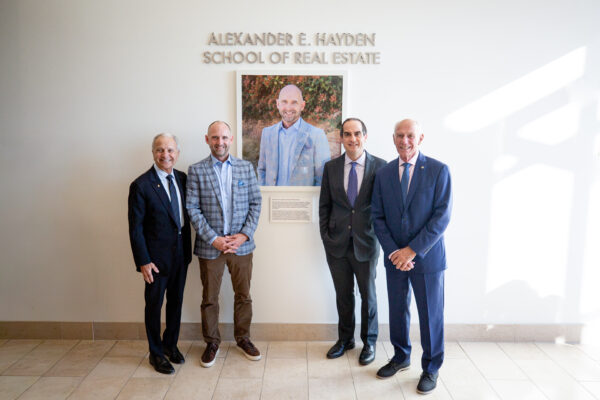Thanks to transformational support as Chapman University’s first Beckman Scholar, chemistry major Emma Kocik ’22 will take the next step in her undergraduate marine research. Over the next 15 months she will test nanoparticles as a tool for restoring the health of aquatic ecosystems.
“We are very excited for Emma, who will be joining the nationally recognized network of Beckman Scholars,” said Elaine Schwartz, Ph.D., associate professor of chemistry and assistant dean for external relations in Chapman’s Schmid College of Science and Technology.
The quality of Kocik’s research proposal earned her the Beckman Scholarship after a rigorous and highly selective process, said Schwartz, who headed up the selection committee.
“I’m honored and thrilled,” said Kocik, a third-year student minoring in environmental science and policy. “Becoming a Beckman Scholar along with earning a Goldwater Scholarship earlier this semester is a testament to how much my Chapman education has inspired me to work hard and pursue my goals.”
Project May Help Reverse Metal Contamination
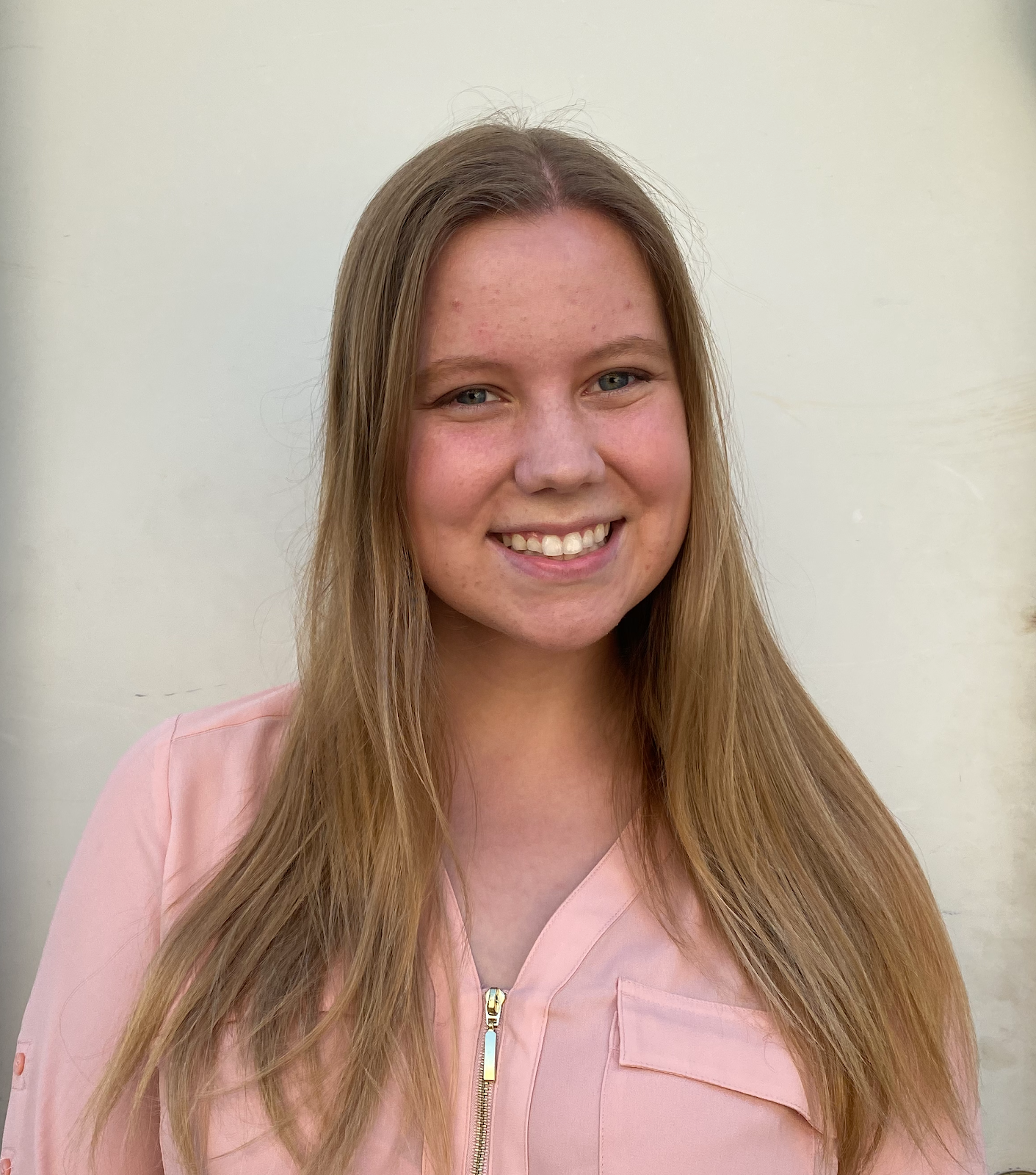
In her new research project, Kocik will study nanoparticles as a means of reversing metal contamination in aquatic environments.
“There’s a big research gap in understanding how these metals are retained, especially where streams reach the ocean,” said Kocik, who will be mentored by Professor Christopher Kim, Ph.D., in the Kim Environmental Geochemistry (KEG) Lab at Chapman.
“I’ll be studying what happens at these brackish boundaries by conducting salinity-based experiments in the lab,” Kocik added. “Not only are we studying what occurs naturally, but the release of artificial nanoparticles could serve an important role in remediating anthropogenic pollution.”
Mentorship, Advanced Training and Networking
An aspiring oceanographer, Emma Kocik ’22 will enjoy many benefits in Chapman’s Beckman Scholar Program. In addition to direct collaboration with Schmid College faculty mentors, Beckman Scholars get advanced instrumentation training in state-of-the-art research facilities, opportunities to network with science professionals and alumni, as well as a range of professional development activities.
After the second summer of their research project, scholars are expected to present their work at the annual Beckman Symposium.
In 2021, Chapman was selected by the Arnold and Mabel Beckman Foundation as one of 12 US institutions to receive a three-year Beckman Scholars Program Award, with up to five Chapman undergraduate students selected to receive high-impact research opportunities.
For Kocik, the award follows her selection as a 2021 Barry Goldwater Scholar, the most prestigious scholarship given to undergraduate students in the natural sciences, engineering and mathematics. The award will help cover the cost of tuition, fees, books, room and board for Kocik’s senior year at Chapman.
Since 2019, when Chapman achieved R2 status as a High Research Activity university, undergraduate research opportunities have continued to grow in the sciences and across the disciplines. These opportunities give Chapman students a competitive edge when applying for scholarships and to graduate programs, said Julye Bidmead, director of the Center for Undergraduate Excellence at Chapman.
Investigating Climate Change Impact in the Arctic Ocean
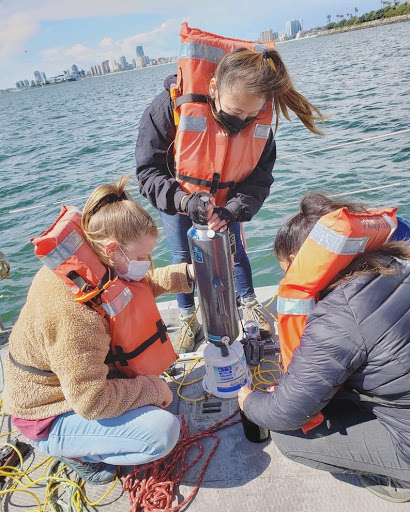
Following the completion of her bachelor’s degree, Kocik plans to pursue a Ph.D. in chemical oceanography. Her goal is to become a professor at a research university investigating the impacts of climate change on biogeochemical cycling in the Arctic Ocean.
A career in research was not in Kocik’s plans when she started college. Kocik transferred to Chapman midway through her first year at another university.
“As someone who had no clue what I wanted to study, I really struggled with the large class sizes and lack of mentorship to help me find my path at my previous institution,” Kocik said. “Chapman ended up being my perfect fit.”
In her first semester at Chapman, Kocik discovered her passion for marine ecosystem research working with Warren de Bruyn, Ph.D., professor of chemistry. Their project is developing a novel method for oil detection in natural aquatic settings.
Realizing Her Potential Thanks to Undergraduate Research
Kocik also gained research experience performing lab experiments for the Southern California Coastal Water Research Project during summer 2020. Schwartz was instrumental in Kocik landing the position, which increased her interest in marine research. After the summer, Kocik was hired as a lab assistant.
“When I didn’t see potential in myself, I always had mentors in my life who saw potential in me,” Kocik said.
Learn More
Learn more about Schmid’s BS in Chemistry program.
